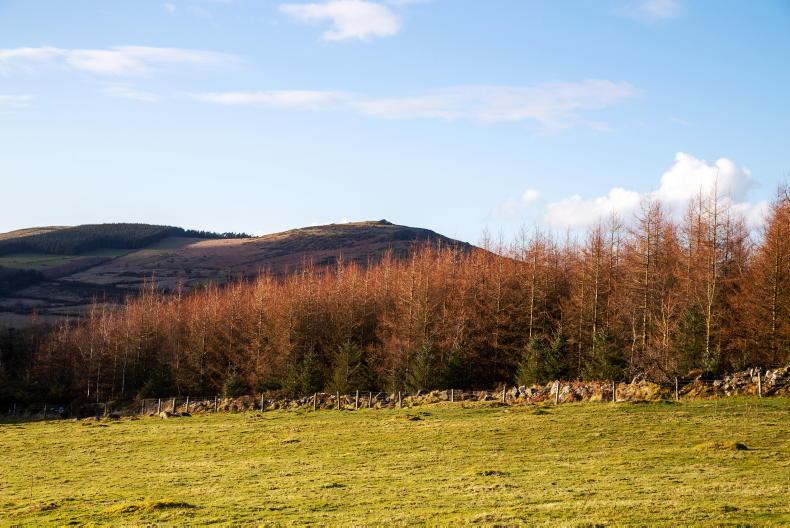There are four primary changes that must be made to the forestry regime if farmers are to be encouraged to plant, according to farmer and IFA forestry chair Jason Fleming.
These barriers to farmer uptake of afforestation centred around licensing requirements and the length of time taken for approval to be granted for planting, thinning or harvesting.
“We have four main problems with the system. The 15km [environmental impact assessment], the single consent, thinning [licences] and the timelines,” Fleming told the Irish Farmers Journal.
The forestry chair said having any forestry proposals within 15km of Special Area of Conservation (SAC) or Special Protected Areas (SPA) designated land screened was discouraging farmers in these areas seeking to plant.
The Department of Agriculture seeks an ecologist-authored Natura Impact Statement from farmers applying in these areas, with the Department carrying out an appropriate assessment on this report to determine whether an application will be approved.
A screening distance of less than 15km would be an improvement, argued Fleming.
“There is no legal basis for the 15km. It used to be only 3km. We need to see that changed to encourage more into forestry,” he said.
Timelines and management
Fleming said the time taken for licences to move through the system was a disincentive to farmers considering afforestation.
“They are saying that the number of licences is improving but we are not feeling it on the ground,” he said.
Thinning is a forestry management tool and as such, no licence should be needed for farmers to maintain their timber crops, he suggested.
“We also need the single consent system that we have been asking for for years,” he added, saying that farmers should not need to apply for planning permission when afforesting land.
Appeals
On the reduction in forestry appeals submitted to the Agricultural Appeals Office in 2021 on the submissions the year previous, Fleming stated that rather than being the result of improvements to the licensing regime, the reduction mirrored the lower number of licences applied for.
“Well, if there are less licences going in of course there will be less [appeals] to deal with,” he said.






 This is a subscriber-only article
This is a subscriber-only article











SHARING OPTIONS: